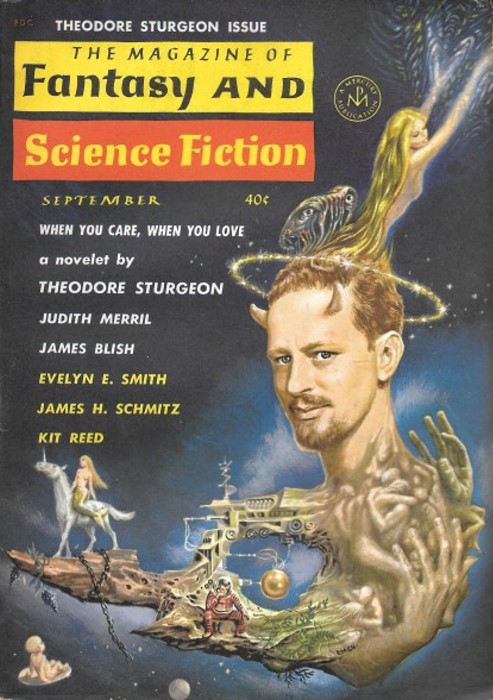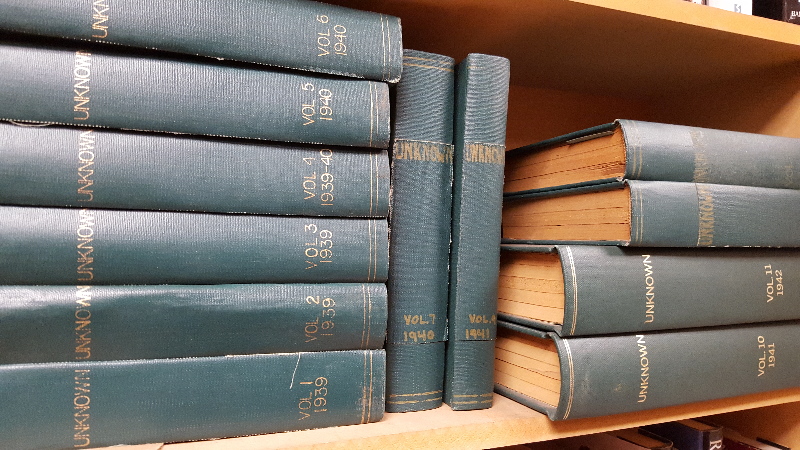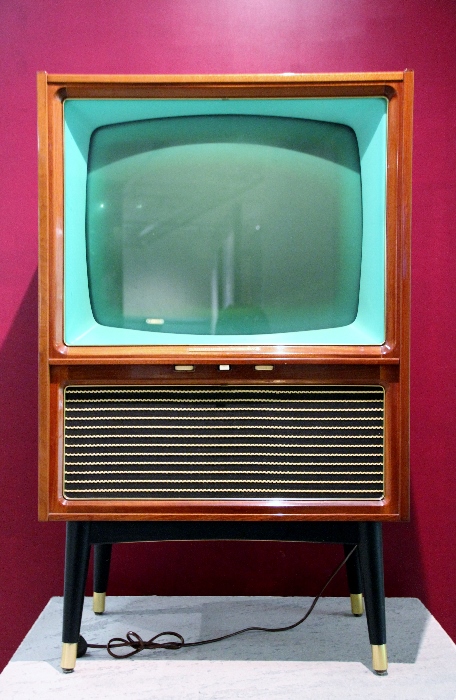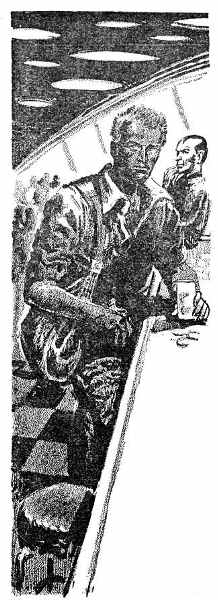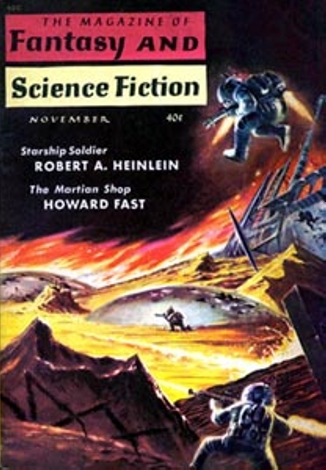[if you’re new to the Journey, read this to see what we’re all about!]

by Gideon Marcus
There are two poles when it comes to how science fiction magazines like to fill their pages. The Fantasy and Science Fiction approach involves lots of short stories — it makes for an impressive Table of Contents and a lot of bite-sized pieces. Analog tends toward the other extreme: its stories tend to be novellas and serials, and you only get 4-5 piece of fiction each issue. As a result, the average quality of any given issue relies on a very few pieces. With Analog, if you don't like several of the authors, you're pretty much out of luck (and 50 cents).
The October 1962 Analog is, fortunately, not that bad, but a wide swath of it is taken up with a pretty lousy novella. If I'd started with it, I don't know if I'd have made it to the rest of the magazine. It's a good thing I read from the back first…
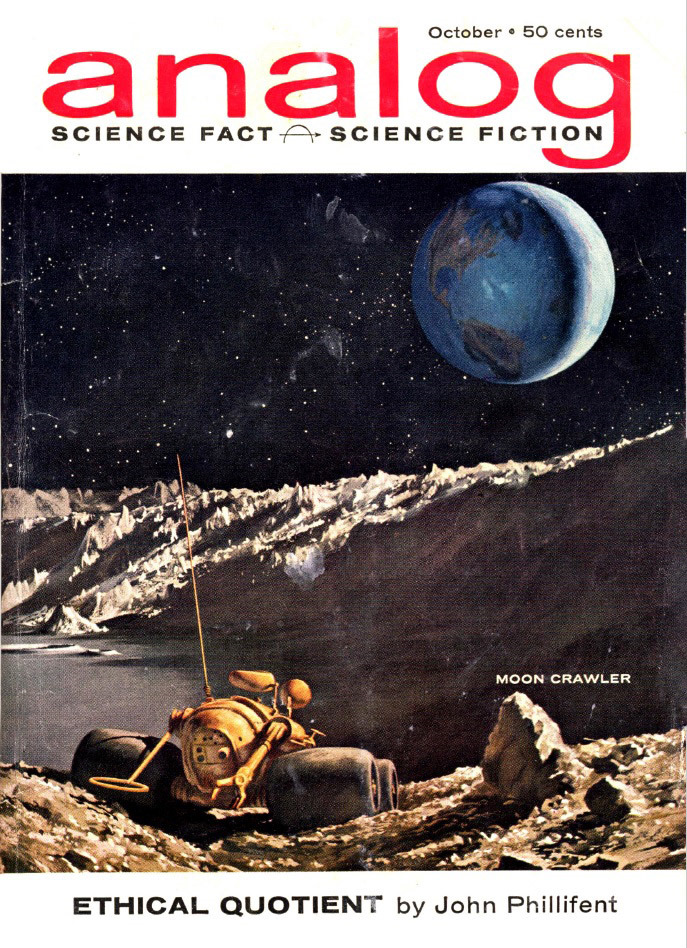
Ethical Quotient, by John T. Phillifent
You've probably run into the British author, Mr. Phillifent, under his more common pseudonym, "John Rackham." Quotient takes up the most real estate of any piece in the issue, and it's a shame. The set-up is pure Campbell, with a Terran science-historian winning a trip aboard Earth's first starship to meet the superior, psionically endowed humanoids of the Galactic Federation. To ensure his safety, the historian is surgically equipped with a psychic transmitter that mimics the native powers of the aliens.
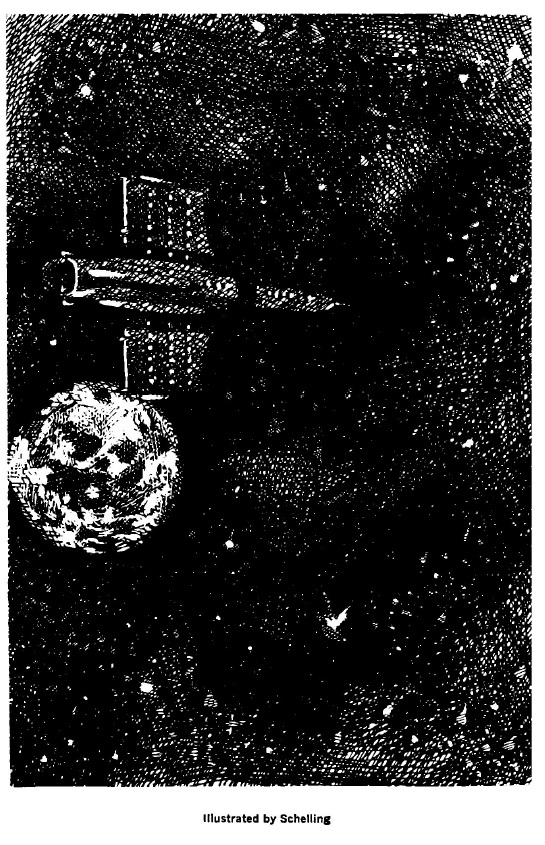
In short order, the Earther is beset by murderers, whom he dispatches with his uncommon athletic ability. A beautiful princess, daughter of the noble whose cabin was hastily vacated to give the historian passage on the starship, also gets involved.
As to what happens next? Well…I can't tell you. You see, I made several attempts to finish this story, and I found myself continually foundering on the shoals of page 20 (of 55!) Somehow, I kept finding the newspaper, or The Andy Griffith Show, or this month's excellent issue of Fantastic more worthy of my attention.
I give up. One star. Let me know what I missed.
… After a Few Words …, by Seaton McKettrig
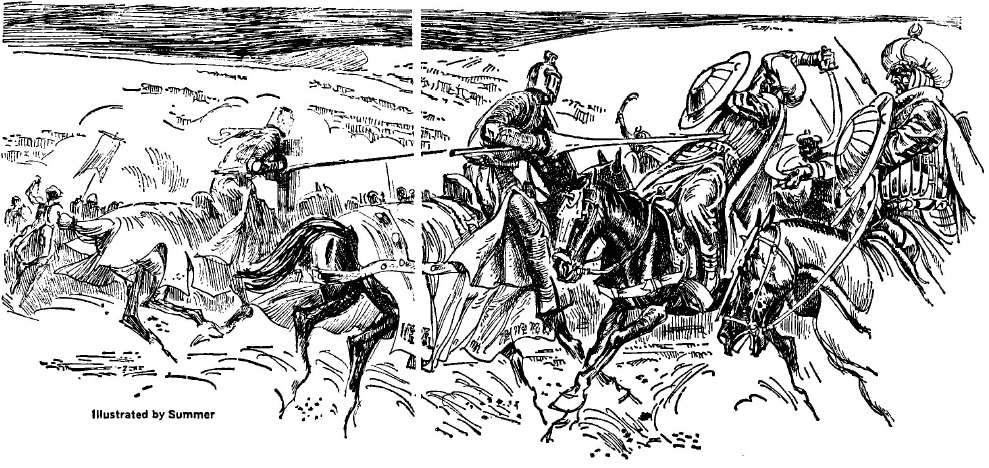
I've never head of McKettrig. He's either new or (more likely with Analog) someone writing pseudonymously. The title of this piece gives the gimmick away of this short tale of the First Crusade, but it's not bad, and the idea of the "televicarion" is an interesting one. Three stars.
Gadget vs. Trend, by Christopher Anvil

Sometimes the transformative effects of a technology on society are subtle and slow; other times, they are dramatic and quick. For instance, the creation of linen-based "rag" paper provided a welcome improvement over parchment, but it was the development of Gutenberg's printing press (which used the fine paper) that caused a revolution.
Anvil's Gadget explores the latter kind of invention, a "quasi-electron" barrier developed in the 1970s that leads to complete societal chaos. Short, punchy, and pleasantly satirical, it's one of the better stories Anvil has produced for Analog. Three stars.
Hypergolicity, by Edward C. Walterscheid

I generally anticipate Analog's science fact articles with a sense of dread. They are often not worth the slick paper they are printed on (in an attempt to add respectability to his magazine, editor Campbell has included about 20 pages of magazine-quality paper for a couple of years now.) Walterscheid takes on a genuinely interesting and current topic: the use of spontaneously igniting fuel and oxidizer mixes for rockets. These combinations are frightfully dangerous, but also convenient, for no spark or fuse is required to set them off, and rockets that employ hypergolics can stop and restart their engines.
It's technical and not as adeptly written as Asimov's or Ley's stuff, but I found it highly informative. Three stars.
A Life for the Stars (Part 2 of 2), by James Blish
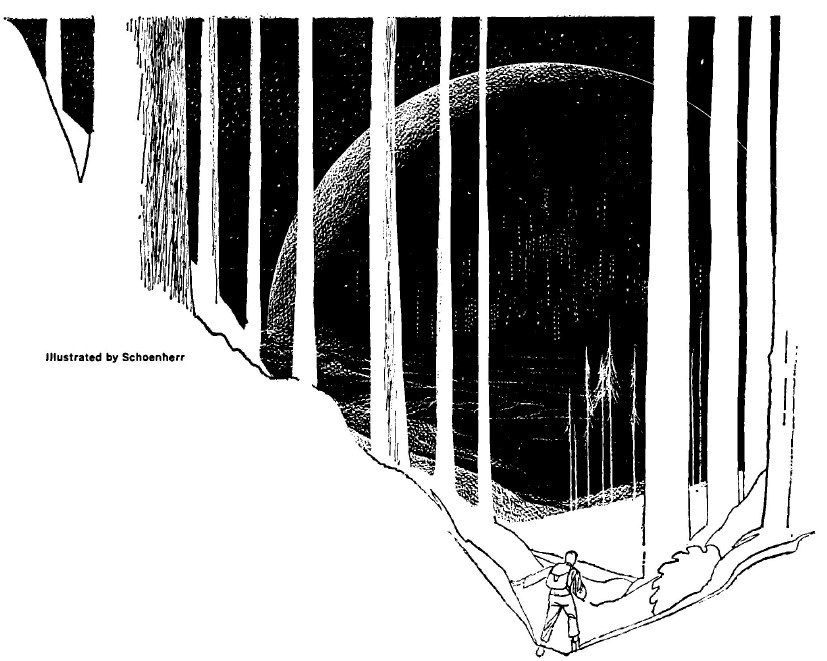
Since my report on the first half of Blish's newest novel, I have learned that the "Oakie" setting, featuring nomadic Earth cities powered by faster-than-light "spindizzy" drives, has been around at least since 1950, when Bindlestiff was published. If the other entries in this universe are as good as A Life for the Stars, then I have some catching up to do.
When we last left our hero, Crispin deFord, an impressed resident of the spacefaring city of Scranton, he had been exchanged for food to the much larger community of New York. As a promising citizen-candidate, guaranteed immortality should he be granted the franchise, Chris is force-fed a torrent of computer-inscribed education so that his true calling might be made evident by his 18th birthday.
But space is a dangerous place, and the potential for planetside treachery, shipboard revolution, or even inter-city conflict is high. Suffice it to say that Chris has several adventures in store for him before he can become a full-fledged New Yorker…and that outcome is far from certain.
The pacing, writing, and characterization are all excellent, and if it occasionally feels as though history and society have stood still for the Oakie universe since 1960, it can be forgiven for all the novel inventions Blish presents. Aside from the flying communities, there are also the "City Fathers," benevolent computers that guide, but don't run, the cities; beamed power that wirelessly runs the electronics; the powered military armor reminiscent of, but presumably predating, Heinelin's Starship Troopers; and more. Five stars, and I'm betting it'll be on 1963's Hugo shortlist.
Buy this issue for, if nothing else, the Blish.










